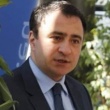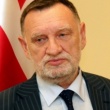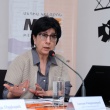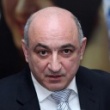Cooperation between the EU and EaP States 10 Years Later: What Lies Ahead?
On September 18 - 19, 2019, an online conference was held on the topic "Cooperation between the EU and EaP States 10 Years Later: What Lies Ahead? on the Public Dialogues website (www.publicdialogues.info). The conference was organized within the framework of "Public Dialogues for Communication between Armenian and Azerbaijani Specialists" project, implemented by “Region” Research Center.
This project is supported by the Black Sea Trust for Regional Cooperation of German Marshall Fund.
The Institute of Peace and Democracy (the Netherlands) is a partner to the project. The Public Dialogues website was established in 2012 by “Region” Research Center and the Institute of Peace and Democracy, which was active in Azerbaijan at that time.
Who participated in the discussion?
Boris Navasardyan (Armenia) – President of Yerevan Press Club,
Arif Mammadov (Azerbaijan) – Co-Chair of the Democracy for Azerbaijan Movement (AND), former Ambassador of Azerbaijan to the EU (2000-2006) and CoE (2006-2012),
Ivlian Haindrava (Georgia) – political scientist,
Hennadiy Maksak – coordinator of the Ukrainian national platform of the Eastern Partnership Civil Society Forum, head of the Foreign Policy Council Ukrainian Prism.
The conference was moderated by Laura Baghdasaryan (Armenia), Director of “Region” Research Center.
What issues and aspects were discussed?
- The main results and lessons learnt, expectations and disappointments from the 10-year EaP program for participating countries and the EU.
- Conflicts and European integration, security and European integration.
- European integration in the public perception of participating countries, public associations/the discourse of cooperation between the EU and Armenia, Georgia, Ukraine and Azerbaijan.
- The degree of functionality of the European case within domestic policy in the relations between the power and political opposition, the power and civil society in the countries of the Eastern Partnership.
- Internal resources for the value-based and political integration of Armenia, Georgia, Ukraine, and even Azerbaijan.
- The geopolitical component of the Eastern Partnership program.
- Processes and problems in the EU, affecting the course and prospects of the EaP program and the European integration of the EaP member countries.
- The prospects of the Eastern Partnership program.
Cooperation between the EU and EAP states 10 years later: what lies ahead?
Excerpts from the materials of online conference (September 18-19, 2019)
(See the full text at http://www.publicdialogues.info/node/883)
On the Achievements and Disappointments of the EaP Countries
Hennadyi Maksak –From among the main achievements Ukraine has had from the past 10 years of the EaP policy, one can confidently mention the start of the full implementation of the Association Agreement between Ukraine and the EU, including the complete and comprehensive free trade zone, as well as the introduction of a visa-free regime with the EU. These achievements can also be called justified expectations of Ukraine.
As for disappointments, the weak articulation by European institutions of membership prospects of partner countries that have such aspirations and are particularly interested in moving closer to the EU, certainly, rank first. The second major disappointment to be mentioned is the weak security component in the framework of the EaP policy, which has been and is very acutely felt against the backdrop of the Kremlin's aggression in Ukraine.
Boris Navasardyan - ... This period filled with crisis phenomena made it possible to assess the ability of the European Union to spread its integration energy to the East. This means that henceforth all the participants of the process will assess their capabilities more realistically, and the continuation of cooperation with partners – whatever form it takes – will yield more predictable results.
... Summing up the ten-year period of the relations between Armenia and the EU, one can record the country's openness for European integration initiatives, the ability of a certain part of its administration to work on strategic documents, which, however, does not deliver the expected results due to the excessive dependence on Russia in issues of cooperation with third parties, as well as due to a lack of political will in and skills for the practical solution of problems.
Ivlian Haindrava - ... Initially, it was stated that the EaP should not be viewed as preparation for EU membership (the so-called Membership Action Plan (MAP) plays a similar role in NATO), and some analysts even half-jokingly stated that the EaP is a program to prevent membership. To date, the EU has no more clarity on this issue, yet the division of the EaP members into two groups according to their plans and ambitions has become more vivid: Ukraine – Georgia – Moldova vs. Belarus – Azerbaijan. The answer I will provide to the naturally rising question “And where is Armenia?” is as follows: she is in the first group with her soul, and in the second with her mind (as necessary, if you’d like it that way). And it is in this paradigm that one has to live and act, and the reasons for discontent, disappointment, and misunderstanding lie exactly on this ground. Discontent, by the way, is mutual: Brussels is dissatisfied with one thing, Chisinau and Yerevan – with another.
Arif Mammadov - Unfortunately, I do not share the optimism of my colleagues regarding Azerbaijan’s participation in this program. The incumbent leadership of Azerbaijan is trying to maintain the lowest, purely formal level of participation in this program, i.e. prefers the formula "less for less". Until today, Azerbaijan has not joined the World Trade Organization, and does not really display much desire to join. This is due to the fact that the entire economy of the country and the entire banking system are in the hands of the Aliyev family. They naturally do not want transparency. The authorities are trying to minimize the level of cooperation on human rights and democracy. Unfortunately, Azerbaijan is far behind Belarus in terms of democracy, not to mention the other members of the EaP.
On the Internal Resources of European Integration and the Functionality of the European Case in the Domestic Policies of EaP Countries
Ivlian Haindrava – Among fundamental resources I will name the degree of the peoples’ self-identification with Europe, the desire to live in the European way, the desire and ability (of the people and the elite) to irreversibly bring their lifestyle (their mentality, attitude to work, and political culture) closer to the European one. The starting point is a priori worse for us in South Caucasus as compared with Ukraine, Belarus, and Moldova (not to mention the Balts, who have been in the Euro-Atlantic structures for 15 years already), whose (at least) geographical affiliation with Europe cannot be doubted. We (the South Caucasian countries) are located somewhere in the middle of nowhere, and therefore we constantly have to prove the legitimacy of our claims for membership to the European family of nations, and our "usefulness" for the West. And the requirements from Georgians are higher than, say, Moldovans (with no offense intended).
Arif Mammadov - Specifically, the EU is interested in Azerbaijan primarily as a supplier of energy resources to ensure the EU energy security. The Azerbaijani authorities are also interested in cooperation specifically in the field of energy, trying to minimize cooperation in the field of human rights, democracy, and most importantly, to limit access to the domestic market for goods and services from the EU. There is no branch of a single European bank in Azerbaijan. Everything (from oil to banks) is in the hands of the ruling family. The authorities are doing everything possible to minimize transparency at customs, as this is where most frauds are carried out. There are big problems with the comprehensive partnership between the EU and Azerbaijan. The authorities actually blocked the access to information on the negotiation process for the opposition and the society as a whole. Unfortunately, the EU is turning a blind eye, guided primarily by interests, rather than value principles.
Hennadyi Maksak – The domestic motivation for integration in Ukraine comes, first of all, from the society. I would like to remind that it was V. Yanukovych’s refusal to sign the Association Agreement at the time that led to the beginning of the collapse of his regime in Ukraine. It is a fact that most domestic reforms related to the implementation of the Association Agreement were largely due to the pressure or articulated demands of the society.
Boris Navasardyan – Our views of Europe contain a combined image of prosperous life, social guarantees, protected rights, well-off life, and access to the highest cultural achievements of the humankind ... Due to the spread of anti-Western propaganda, and partly because of real challenges posed by the essence of Europeanism described above, its attractiveness has slightly decreased even in European, or at least in the Armenian society. This applies even to the motivation for upcoming or past emigration to EU countries: among numerous incentives voiced in the past, the prevalent incentive of the day is the chance of a relatively comfortable life.
Ivlian Haindrava – The (incumbent and former) authorities and the opposition (present and past) use the theme of Georgia’s Euro-Atlantic integration to accuse each other of all mortal sins after the following scheme: we are real Atlantists, and you are serving the interests of the Kremlin. That is the whole discourse, and apparently, our Western partners feel tired of it too. They have already started to openly urge the parties to stop the catfight at least on this issue. Our political culture, however, leaves much to be desired. Yet, political culture in the EU is also not on the rise either ...
Boris Navasardyan – Until 2012, the more or less significant political forces of Armenia, to one degree or another, declared European integration to be their creed. With the more vividly expressed open confrontation between the European and Russian vectors, most of the political landscape began to support the reorientation towards the Eurasian project. Today, the vast media and other resources owned by the opponents of the "velvet revolution" have made all of Europe (its values, lifestyle, politics) a target of frantic criticism and bashing. And the new government shyly bypasses the mention of European origin of its domestic political agenda. In the context of the topic, I would qualify the above-described process as a deepening crisis of national identity, caused by political conditions and the pressure of propaganda. Indeed, there can be no doubt about the strong European component of the Armenian identity.
On Russia as a Factor for the Development of Relations between the EU and EaP Countries
Boris Navasardyan – Probably, certain changes should be expected regarding the factor of Russia in the EaP countries. If the first steps of this EU initiative, contrary to official statements, indicated that the farther the partners moved away from Moscow, the closer they got to Brussels. Today, a number of influential members of the European Union are inclined to adhere to the inverse formula: the fewer problems the eastern neighbor has with Russia, the more reliable the cooperation with it. The foregoing, of course, does not apply to Ukraine. But in relation to others - with varying degrees of probability - this formula may turn out to be relevant. If my assumption proves right, it will be possible to talk about rolling out integration potential of the Eastern Partnership, whatever form it takes.
The return of Russia to its active role in the Council of Europe is an additional factor, too. Given the expected greater focus of the European Union and its newly formed institutions on their own concerns (there was even a risk of liquidating the post of Commissioner for Enlargement and Neighborhood), the Council of Europe, relying on the resource support of Brussels, has a chance to regain its significance in the EaP region. Of course, we are talking about issues related to democratization and human rights. And this, in turn, will testify to overcoming, to a certain extent, the differentiation of the European policy regarding the Russian Federation and other the Council of Europe members in the post-Soviet space.
Hennadyi Maksak - The factor of Russia has significantly increased in relations between partner countries and the EU. However, the negative context of influence prevails. Firstly, after Russia's aggression in Ukraine, the EU took several steps in pursuing a sanction-based policy against Russia in order to urge the Kremlin to stop violating the sovereignty of Ukraine. And, naturally, Russia is a vividly expressed fault line for the countries of the EaP, which undermines the EaP’s goal of unification. In Ukraine, Russia’s return to the Council of Europe is perceived very negatively, which is another proof of the decline of this organization. I don’t think that this will directly affect the policy of the EaP, but in the long run, we might have to expect increased Russian influence in individual EU countries, which can ultimately lead to an undermined state and erosion of the Eastern Partnership.
Ivlian Haindrava – The factor (of Russia - Editor) intensified many times, and the Ukrainian events of 2014 are the main (but not the only) evidence of this. Even before Ukraine, there was a 180-degree turn of the course taken by the Armenian leadership (exactly six years ago); the reversal, as I think, was not entirely voluntary. I understand that I can formally object that they mean the EaP, and not association with the EU and other modes of European integration, but it’s clear that the essence is the same.
But the strengthening role of Russia manifested itself in different ways: Russia incorporated Armenia into the Eurasian structures "subordinate" to it, but Ukraine moved far from it abruptly and very distantly (mentally, at least). Russia’s return to the Council of Europe is just another blow to the image (and not only) and the prestige of Europe. Again, I am not inclined to exaggerate the significance and capabilities of this institution (CE), but the fact of the reinstitution of the Russian Federation is perceived as an indulgence to the Kremlin for all its revenge-seeking antics. It seems to be a retreat before brute force and a violation of all declared values and principles ...
Arif Mammadov – I am not inclined to exaggerate the importance of the Council of Europe and I do not believe that Russia's membership to this organization is a carte blanche given by the West. First of all, the restoration of membership of the Russian delegation is for the West one of the few levers of influence on Russia. In addition, the financial situation of the CoE leaves much to be desired. Considering that Russia's contribution to the organization’s budget is quite significant, the CoE might have gone bankrupt without additional financial support. Unfortunately, the attitude of the EU towards the Council of Europe leaves much to be desired. The caviar diplomacy scandal revealed only a small part of the corruption iceberg in the Council of Europe and gave a significant blow to the image of this organization. If the Council of Europe does not take additional steps, the corruption network will be just as easily restored, especially given the fact that many people who were involved and actively participated in these processes from the Secretariat and CoE structures are still there.
What's Next? Probable Prospects for the Development of the EU Policy towards EaP Countries
Boris Navasardyan – ... When faced with many challenges, the EU countries will consider it necessary to limit external expansion (in the good sense of the word) and devote the next five-year period to internal mobilization to restore strength. This may mean a different perception of the world around us as not an object where you create ones of your own kind, but only as partners for solving one’s own problems. Accordingly, the value of the EaP countries for the EU and the prospects for further rapprochement will be determined by what they have to offer. For example, Ukraine is definitely of interest from the point of view of security, which for the EU is increasingly turning a matter that requires independent solutions. This does not mean, of course, that the country's attractiveness will be limited to the security aspect only. Azerbaijan remains important for ensuring the EU’s energy security, which, however, can – as in the past – prevent rather than contribute to convergence in other areas. Armenia’s chance to succeed is that the EU is aware of the threats to the values it is built on. And Armenia’s potential as a country that not only imports, but can also export values as a resource, will not go unnoticed. The recognition of such opportunities is, of course, much more difficult as compared to the recognition of opportunities pertaining to the fields of economy, energy or security...
Hennadyi Maksak –There are several processes that affect the EaP policy.
1. The internal transformations of the EU itself, refinement of the transformation of foreign policy instruments and the decision-making process.
2. Russia's further position in its relations with EU member states and the countries of the EaP region.
3. Well, and, of course, the transformations taking place in each of the partner countries.
Alas, non-predictability is inherent in each of the above-mentioned directions and can potentially modify the format of the EaP.
Arif Mammadov - ... The EU needs to figure out where it is heading. The victory of Eurosceptics in the last European elections, the disagreements among EU countries, the complete failure of migration policy and the policies pursued in the relations with Russia, as well as the decrease in US’s interest in the EU, the former’s actual support for Brexit, Viktor Orban's migration policy, and so on make the future of both the EU and its EaP policies quite blurry.
Ivlian Haindrava – ... The situation is so blurry, foggy, ambiguous, that I simply cannot predict anything. I involuntarily recall how three years ago I fell asleep with Britain as part of the EU and woke up with Brexit. Boris (Navasardyan – Editor) very accurately noticed "the dominance of purely bureaucratic approaches in the offices of European structures." I will go even further and say that the European mainstream has begun to produce bureaucrats instead of politicians too prematurely. How long will it take my colleagues in this discussion to recall the lasting effect caused by Juncker’s predecessor? And remembering the name, what accomplishments of Van Rompuy will come to mind? How many days will we remember Mogherini after her term in office is over? As much as Ashton is remembered, right? And where will Europe go with such leaders? Leaders that are not selected due to brightness, creativity, vision, potential, but are selected according to a combination of geographical, gender, gastronomic, graphological and other factors that start with the letter "g"?
Difficult years are lying ahead of us all (and when, in fact, were years easy?). It is necessary to survive as peoples and states in the literal sense of the word. It is necessary not to lose goals and guidelines, not to betray values, not to lose our cultures. It is necessary to show not only stamina, but also resourcefulness, if you like it. And then something will come forth, just as it always happens. I hope that there will be a re-conceptualized, improved, ad renewed Europe, which will have a place for us – the survivors.
Please read the full material of the internet conference in Russian here:
http://www.publicdialogues.info/node/883







